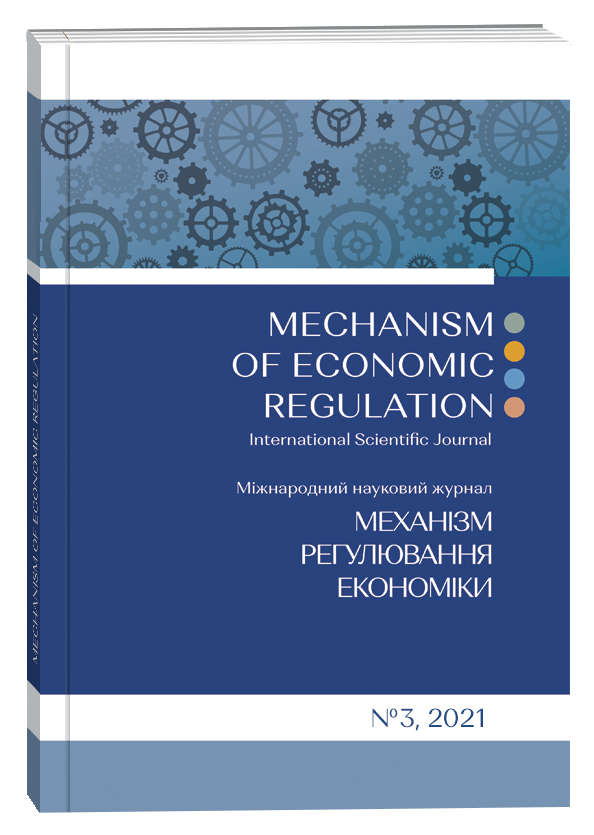FORMATION OF THE TERRITORIAL BRAND UNDER GENDER CONSIDERATION
Abstract
Nowadays, the issues of the territorial force of attraction and strategic development are growing more urgent. Territorial branding is one of the crucial stages in this process. It highlights the real and creates new narratives of the particular territory in time and space. The systematization of scientific sources showed that the theoretical and practical studies on territorial branding are contradictory due to the influence of many stakeholders preventing from elaborating a unique concept for territorial development. While territorial development is a complex system depending on the residents' perceptions and attitudes, the issues of gender aspects of regional identity are still poorly developed. Therefore, the formation of the territorial brand is becoming relevant due to the necessity to balance the interest of different social groups. This paper summarizes the arguments and counterarguments within the scientific discussion on the territorial brand's formation under consideration of gender features. This research goal is to consider the role of gender features in the mechanism of territorial brand formation. The study subject is the gender features in territorial units. The methodological base of the study involves the abstraction technique, generalization method, synthesis, graphical methods, and system analysis. In the study frameworks, the authors unveiled the differences in information perception between men and women. The main gender inequalities influencing the attitude to the territory were considered. The findings showed that territorial brand is not only the tool for promoting territory. It formulates territorial identity, mitigates and overcomes gender inequalities, and increases competitive advantages of territory.
References
Akhundova, N., Pimonenko, T., & Us, Ya., (2020). Sustainable growth and country green brand: visualization and analysis of mapping knowledge (Book of Proceedings), 55th International Scientific Conference on Economic and Social Development – "Economic and Social Development", Baku, 1819 June 2020, P. 234–243. (Web of Science in English)
Bilan, Y., Pimonenko, T., & Starchenko, L. (2020). Sustainable business models for innovation and success: bibliometric analysis. In E3S Web of Conferences (Vol. 159, p. 04037). EDP Sciences.
Chygryn, O. (2017). Green entrepreneurship: EU experience and Ukraine perspectives. Centre for Studies in European Integration Working Papers Series, 6, 6−13.
Chygryn, O.Yu., & Scherbak, A.S. (2011). Analysis of the problem of the introduction the environmentally friendly production in Ukraine. The mechanism of economic regulation. 1, 235−241.
Dubina, O., Us, Y., Pimonenko, T., & Lyulyov, O. (2020). Customer Loyalty to Bank Services: The Bibliometric Analysis. Virtual Economics, 3(3), 52−66. https://doi.org/10.34021/ve.2020.03.03(3)
Gaggiotti, Hugo & Yunak, O. (2008). City brand management (CBM): The case of Kazakhstan. Place Branding and Public Diplomacy. 4. 10.1057/palgrave.pb.6000081.
Hankinson, Graham. (2004). Relational Network Brands: Towards a Conceptual Model of Place Brands. Journal of Vacation Marketing. 10. 109−121. 10.1177/135676670401000202.
Hussain, S. A., Haq, M. A. U., & Soomro, Y. A. (2020). Factors Influencing Consumers’ Green Purchase Behavior: Green Advertising as Moderator. Marketing and Management of Innovations, 4, 144−153. http://doi.org/10.21272/mmi.2020.4-11
Lyeonov, S., Pimonenko, T., Chygryn, O., Reznik, O., & Gaynulina, R. (2021). Green brand as a marketing instrument: Principle, features and parameters. International Journal of Global Energy Issues, 43(2-3), 147−165. https://doi.org/10.1504/IJGEI.2021.115141
Lyulyov, O., Pimonenko, T., Kwilinski, A., & Us, Y. (2021). The heterogeneous effect of democracy, economic and political globalisation on renewable energy. In E3S Web of Conferences (Vol. 250, 03006). EDP Sciences. https://doi.org/10.1051/e3sconf/202125003006
Official website of State Statistics Service of Ukraine (2021). Retrieved from: http://www.ukrstat.gov.ua/
Palienko, M., Lyulyov, O., Denysenko, P. (2017). Fiscal Decentralisation as a Factor of Macroeconomic Stability of the Country. Financ. Mark.Inst. Risks, 1, 74–86.
Pimonenko T., Us J., Leus D., Fedyna S. (2017). The modern ecological and economic instruments for sustainable development. Bulletin of Sumy State University. Economy Ser., 2, 57–67.
Pimonenko, T., Liuliov, O., & Us, Y. (2019). Marketing strategies of green investments: basic concepts and specific features. Herald of Ternopil National Economic University, (1 (91)), 177−185.
Pimonenko, T., Lyulyov, O., Chygryn, O. (2018). Marketing of green investment: collaboration between main stakeholders. Reporter of the Priazovskyi State Technical University. Section: Economic sciences, 36, 214−220.
Pimonenko, T., Lyulyov, O., Chygryn, O. (2019). Company’s image and greenwashing in the framework of green investment concept. Scientific Bulletin of the Odessa National Economic University, 2, 143−157.
Pimonenko, T., Lyulyov, O., Us, Ya. (2019). Marketing strategies of green investments: main provisions and basic features. Herald of Ternopil National Economic University, (1), 177−185. doi:https://doi.org/10.35774/visnyk2019.01.177.
Pimonenko, T., Toptun, Yu., Us, Ya. (2020). Gender aspects and green marketing: a case for Ukraine. Visnyk of Sumy State University. Economy series, 2, 133−140
Qu, H., Kim, L. H., & Im, H. H. (2011). A model of destination branding: Integrating the concepts of the branding and destination image. Tourism Management, 32(3), 465–476. doi:10.1016/j.tourman.2010.03.
Shymon, S., Kolomiets-Ludwig, E., Osiejewicz, Jo., Krawczyk, D. & Kaminska, B. (2020). The Role of Country Brand in Providing Economic Resilience. Marketing and Management of Innovations, 1, 303-311. http://doi.org/10.21272/mmi.2020.1-26
Statistical documents of series F №111. Gender Mainstreaming in Statistics (2016). Department of Economic and Social Affairs of United Nations. Access mode: https://unstats.un.org/unsd/demographic-social/Standards-andMethods/files/Handbooks/gender/Integrating-a-Gender-Perspective-into-Statistics-R.pdf
Thomas, T. (2020). Employee Advocacy as a Marketing Strategy to Power Brand Promotion: an Employee Perspective. Marketing and Management of Innovations, 2, 167−181. http://doi.org/10.21272/mmi.2020.2-12
Tovmasyan, G. (2020). Raising the Effectiveness of Tourism Marketing and Branding: Evidence from Armenia. Marketing and Management of Innovations, 1, 167−181. http://doi.org/10.21272/mmi.2020.1-13
Us, Ya., Pimonenko, T., Lyulyov, O. (2020). Energy efficiency profiles in developing the free-carbon economy: on the example of Ukraine and the V4 countries. Polityka Energetyczna – Energy Policy Journal, 23(4), 49−66. https://doi.org/10.33223/epj/127397
Zeng, F., Bhutto, M. Y., & Soomro, Y. A. (2019). Chinese Smartphone Brands: Gender, Consumers Behavioural and Attitudinal Loyalty. Marketing and Management of Innovations, 2, 83−98. http://doi.org/10.21272/mmi.2019.2-08


